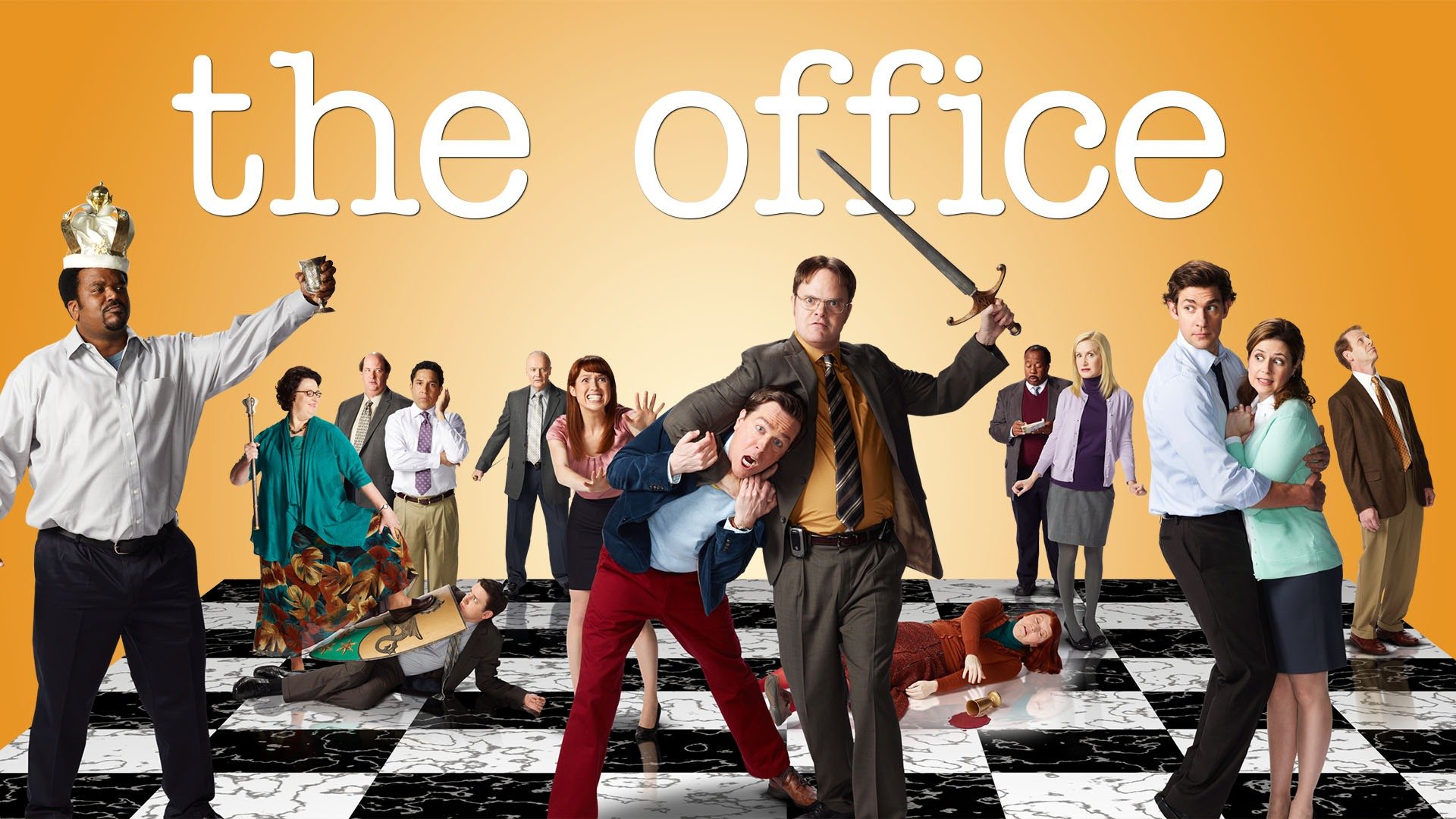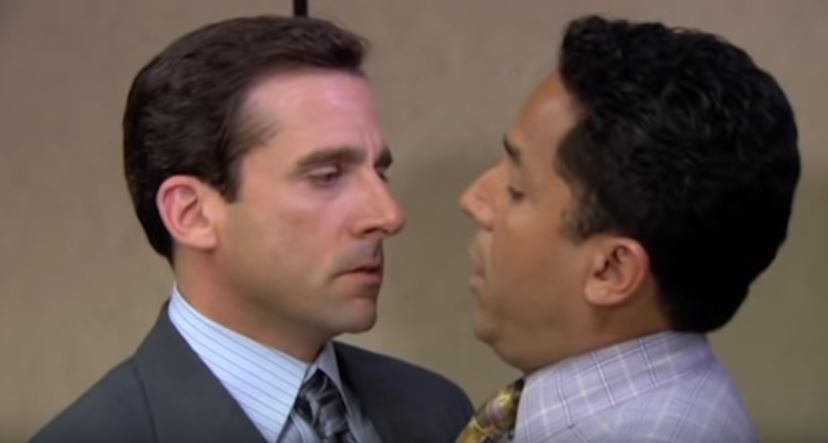
Almost everyone has heard of The Office. In 2020 alone, Netflix viewers watched over 57 billion minutes of the office. That is well over 100,000 years in viewing time. Viewers, potentially including you, watched the show to pass the time, relate to the characters, or simply have a laugh.
What may seem like a very simple show of a camera crew filming a documentary about an average Pennsylvania paper company, The Office actually completely changed television.
When The Office initially aired in 2005, reality television was the rage. From The Bachelor to American Idol and The Bachelor, audiences loved the relatability of the reality shows, and in many circumstances, dramas, comedies, and less relatable television were kicked to the curb. Greg Daniels, the writer of the Office, pushed the scale back in 2005. Even when the signs showed that a new comedy was bound to fall flat in the current climate, The Office went on.
The Office brought the ‘mockumentary’ format back to television. In order to succeed in the competitive television market, Greg Daniels knew he needed to do something different. So, he made the comedy relatable with interviews, seemingly ordinary characters, and problems people face on a daily basis. The difference between The Office and reality TV was that The Office was not actually real. The documentary format of the show simply gave the illusion that it was real. Additionally, The Office, unlike many other comedies, does not have a laugh track playing. It is the duty of the audience to know when to laugh and feel sympathetic for the characters, or whatever the case may be. This just adds to the reality aspect of The Office because it is like simply watching a documentary; there are no cues when to react or how to react to certain scenes.
While all viewers still knew that the documentary was actors and actresses acting scripted scenes, the market for the mockumentary boomed. Shortly after The Office, Parks and Rec. and Modern Family followed, each succeeding in a huge way.
The Office didn’t simply succeed because it had a certain relatability that the viewers enjoyed, but The Office pushed comedy forward. Cringe comedy had lost popularity at the time The Office first aired. Once again, that didn’t stop the writers. The show eventually succeeded, but not without faltering first. The Office’s first season was a trainwreck. After trying to replicate the UK version of The Office, one of the main characters, Michael Scott, the regional manager at Dunder Mifflin Paper Company, fell flat. Viewers disliked him on screen, and The Office writers knew they had to pivot.
Quickly, they conveyed Micahel from a flat copy character based off of the UK version of the show that aired prior to the American version of The Office, Michael built some depth and empathy to contrast with his off-putting, inappropriate personality seen in season 1.
The sheer creativity the writers had put The Office together is incredible. First, they resurrected the show by adding depth to one of the primary characters. Second, the actors were allowed to flourish.
Many of the scenes in The Office, contrary to popular belief, are not scripted. For example, in the episode “Gay Witch Hunt,” Steve Carrel went off script and kissed Oscar Nunez. During the scene, to this day, you can watch the episode and see the shock on most of the cast when the camera panned around to show their reaction. These were their genuine reactions. Oscar Nunez, the actor for Oscar Martinez in the show, accepted the kiss. This ability for actors to use their talents beyond the script really makes The Office special and different from many other shows.

Lastly, The Office was actually one of the very first shows to be put online for viewers. It was not online right away, but it was quickly moved onto Netflix when Netflix started streaming shows in 2007, two years after The Office originally aired. Especially with its enormous following, the addition of The Office to an online streaming service really pushed for the expansion of online television.

The Office is a show, whether you’ve seen it or not, you’ve probably heard of it and know many people who have watched all nine seasons. With an incredible number of viewing hours, the masterpiece of a television series goes down as one of the best ever. With steps in the opposite direction of television during its original airing, to revolutionizing how TV shows are made, The Office will not be forgotten any time soon.
Chris, The Office is a show that I love, so I was very interested to read your article. I liked how you set the scene of what the TV market was like in 2005 when The Office first aired. It made me realize how revolutionary The Office was for its time, and the risks that the developers took in an era dominated by reality TV. As you detailed, it really is a unique show. The Office broke many of the TV norms when it first aired in the U.S., like being filmed in the style of a documentary and not having a laugh track. These two factors I feel combined to make the show extremely relatable for such a large audience. It was intriguing to learn how the development crew changed Michael’s character after Season 1, and how the actors would improvise during scenes. The immense success of the show speaks to the talent of both the producers and the actors. I think that The Office still stands as a true classic to this day. It inspired several other mockumentaries like Parks and Rec and Modern Family, but I think that The Office remains firmly above its peers.
Chris, I hate to be that guy, but I truly despise The Office. I don’t know why, but I tried it a few years back, and something about it didn’t sit right with me. Maybe it was the lack of a laugh track or the emphasis on “cringe comedy” or maybe Diversity Day was just too absurd of an episode to start with, but I couldn’t do it. I felt so deeply uncomfortable watching it for all these reasons, and yet somehow they’re the iconic features that you highlight. Don’t get me wrong, I love to laugh, and comedies are some of my favorite forms of media. I also can respect the impressive skill of the actors that you mentioned. Unscripted moments, ad libs, and flexibility form the cast contributed to an unparalleled show. Even this kiss moment you highlighted shows just how amazing the actors had to be to take everything in stride when the action when completely off the rails from the script. However, I do think kissing a costar without it being scripted might not go over well in this day and age – something to think about as you analyze the show’s significance in its era. Nevertheless, you’ve made your point clear; The Office was undeniable in its role on television, media, and comedy. Overall, great post, terrible show!
I love this because the shows you mention are not only hilarious but made in the same format as well. The blueprint for scripted documentary comedies came from the Office and it has made many people very rich. I am also happy that the show was airing back when people weren’t so sensitive and could handle the jokes that were made here. I saw the other comment saying the show was horrible and I’ve come to understand that some people just don’t have any taste at all. The story lines were good and it was a great binge watch as well.
Before I watched the Office I watched Parks and Rec and the first few seasons of Brooklyn 99. I really enjoyed those shows and their mockumentary style so I started watching the Office with high expectations. I found I didn’t really enjoy the Office as much as I did Parks and Rec. Maybe that was because I had watched it first, but I guess I like the character dynamic more in Parks and Rec more than in the Office. That’s literally just my own opinion of the show. Your post brought up great points and I think at the end of the day, even if you don’t like the office you have to agree that it will always be considered one of the best comedy shows. Alongside that, when I think of comedy shows, I feel like the Office and Friends are often grouped together. Personally, I think it’s pretty hard to compare the two shows because they were made at different times, have different audiences, and have different comedic styles. I think the characters in Friends are really well developed and it has a very reliable approach to plot, but the one thing I can’t stand about Friends is the laugh track (Or I guess laughing audience because it was filmed live). I remember reading or hearing that if someone took out all of the time wasted by laughing, the episodes were significantly shorter. Also, various “real” blogs talk about how, without laughing, the meaning of Friends could be interpreted completely differently. I think your thoughts on Friends either as a whole or compared to the office would be really interesting.